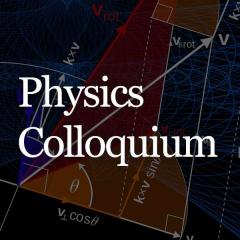The 2021 Nobel Prize in Physics - complex systems and predicting global warming
Speakers: Emeritus Professor Ross McKenzie and Dr Henry Nourse
Affiliation: University of Queensland
Abstract
Complex systems are everywhere. The economy, brains, biology, climate, and the materials that surround us are all composed of many small interacting parts. The whole system often displays emergent phenomena that are surprising and hard to predict solely from a knowledge of the parts and their interactions.
The Nobel Prize in Physics 2021 was awarded "for groundbreaking contributions to our understanding of complex systems". Half of the prize was awarded to Giorgio Parisi "for the discovery of the interplay of disorder and fluctuations in physical systems from atomic to planetary scales." His theoretical work provided profound insights into a strange state of matter: the spin glass that can exist in metals containing a random array of magnetic atom impurities. The techniques and concepts developed by Parisi for this specific complex system have been used to understand complex systems studied in mathematics, computer science, neuroscience, and biology.
The second half of the prize was jointly awarded to Syukuro Manabe and Klaus Hasselmann "for the physical modelling of Earth's climate, quantifying variability and reliably predicting global warming". Manabe was the first to study a model that included the main relevant physical processes that reliably predict global warming from the greenhouse effect. Hasselmann’s work was "the first serious effort to provide a sound statistical framework for identifying a human-caused warming signal."
In this colloquium we will describe the background needed to appreciate the significance of the contributions to science by this year’s Nobel laureates in Physics.
About Physics colloquium
The Physics Colloquium series hosts a range of speakers from Australia and abroad. The series explores a variety of topics and everyone is welcome to come along. The seminars are open so there is no need to register your attendance.
If you would like to sign up for colloquium announcement emails, you can join the mailing list by sending a blank email to:
- For UQ email addresses: physics-colloquium-others-join@lists.science.uq.edu.au
- For non-UQ email addresses: physics-announce-external-join@lists.science.uq.edu.au
(Note: if you receive physics-all emails, you should already receive these and don't need to sign up again).

